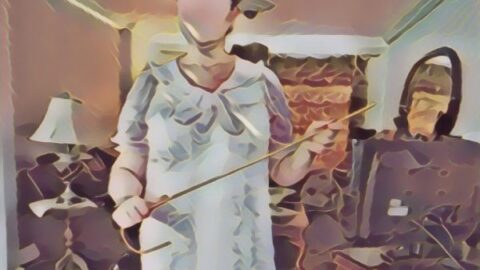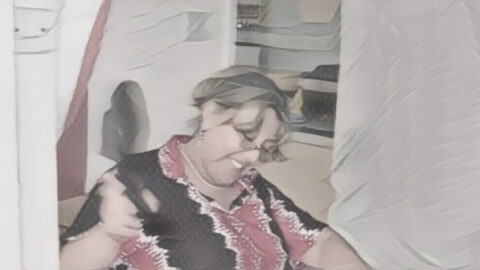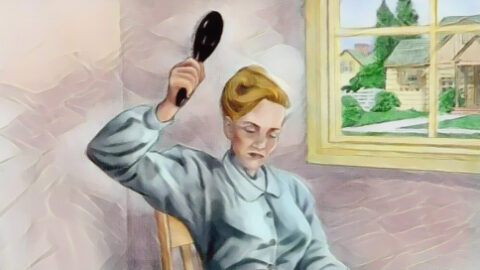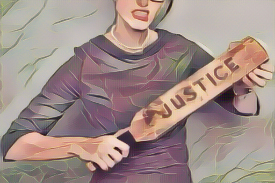My Mother and Father were reasonable people, products of their time who believed firmly that their offspring should be raised in the proper manner. It was a household built on a foundation of love, absolutely. We were well-loved, and they gave us everything that they could possibly afford, ensuring we never went without the true necessities. But alongside that affection was an unshakeable structure of discipline. There was never any doubt as to who was in charge. Their authority wasn’t cruel, but it was constant and clear, a framework they believed was essential for building character and respect.
I vividly recall one instance from those formative years, a memory so sharp it feels like it happened last week. We lived in a modest house that backed onto a lovely stretch of countryside, and through it ran a small, babbling stream. To my brother and me, it was a world of adventure waiting to be discovered. To my parents, it was a hazard. We had been explicitly, repeatedly forbidden to play near it for obvious safety reasons. The warnings were stern, leaving no room for interpretation.
But the call of the forbidden is a powerful lure for a curious child. One bright, sunny afternoon, I decided the stream was too tempting to ignore. I found my younger brother playing in the garden and, feeling like a seasoned explorer, I persuaded him to join my secret expedition. He was hesitant, his face a mask of worry, reminding me of Mum’s words. But with promises of adventure and the confidence only an older sibling can project, I led him down the grassy slope, through the tall weeds, towards the forbidden water’s edge.
For a while, it was everything I’d imagined. We were pioneers, dipping our fingers in the cool water and daring to step on the mossy stones. In the course of our playing, I dared him to cross a particularly slippery-looking rock. He took a tentative step, his foot wobbled, and in an instant, he slipped and fell into the water. It wasn’t a serious fall; the stream was shallow, and only his legs went in, but the shock and the cold were enough. His face crumpled, and a wail of terror erupted as he scrambled out, soaked and shivering. He immediately turned and ran home, crying his eyes out.
I followed in a state of pure dread. When my mother saw his soaked trousers and tear-streaked face, her expression shifted from concern to pure fury, all of it directed at me. She knew instantly I was the ringleader. After calmly getting my little brother out of his wet clothes and wrapping him in a warm towel, she turned her attention to me. There was no shouting, just a quiet, simmering anger that was far more terrifying. She took me across her knee and gave me a good, hard smacking on my bottom.
I can still remember the sting, sharp and shocking. But what hurt far more, what truly burned itself into my memory, was the humiliation. It wasn’t just the physical pain; it was the crushing blow to my pride. This was the one and only time that I had ever had my bottom smacked in front of someone else. My little brother, now calm and safe, was a silent witness to my disgrace. The memory of his wide, pitying eyes hurt more than the smacking itself.
The second incident occurred about five years later, when I was in my third year at secondary school. The world of childhood mischief had given way to the more calculated rebellion of adolescence. One dreary Tuesday afternoon, my friend and I were staring out the window during a particularly dull lesson. We decided, in a moment of shared recklessness, that a trip to the local shops would be infinitely more fun than attending school. The thrill of the idea was immediate and intoxicating.
As luck, or perhaps fate, would have it, our little adventure was short-lived. While wandering through the town centre, feeling a false sense of freedom, someone who knew our parents recognised us. They didn’t confront us, but they did contact the school. In those days, the school system had a very rigid and predictable response to truancy. There was only one punishment for such a transgression, and the next morning, my friend and I found ourselves standing on the worn carpet outside the headmistress’s office, our bravado from the day before completely gone.
The day I received six strokes of the cane at school is etched in my memory. I was summoned to the headmistress ‘s office, my heart pounding in my chest.
We were called in. The headmistress was a formidable woman, and her office felt like a courtroom. She spoke to us about responsibility, about the rules of the school, and the trust we had broken. Then, she opened a drawer and produced the cane. It was thin, polished, and looked terrifyingly flexible. The six strokes of the cane which me and my friend each received were delivered with a cold, formal precision. It was a lesson in consequence, sharp, painful, and utterly unforgettable.
Looking back, I held no grudges against my mother or the headmistress. In the context of the times, their actions made sense. I knew I had willfully disobeyed, and I understood that I deserved what I got. The smacking was a lesson in responsibility for others’ safety, born from a mother’s fear and anger. The caning was a lesson in social order, a cold, institutional consequence for breaking the rules. Both incidents, in their own way, taught me a fundamental truth I’ll never forget: actions have consequences.






























































